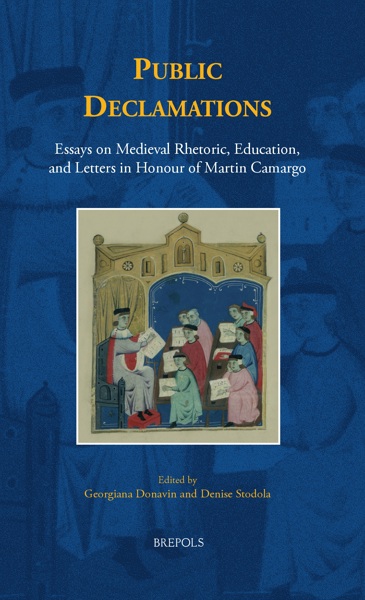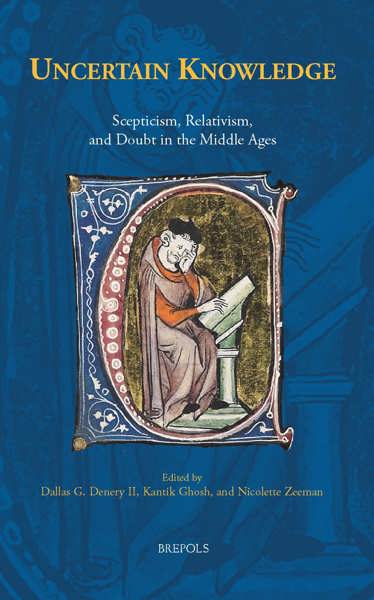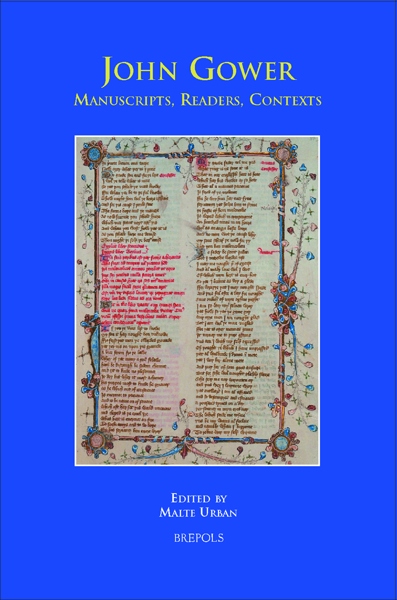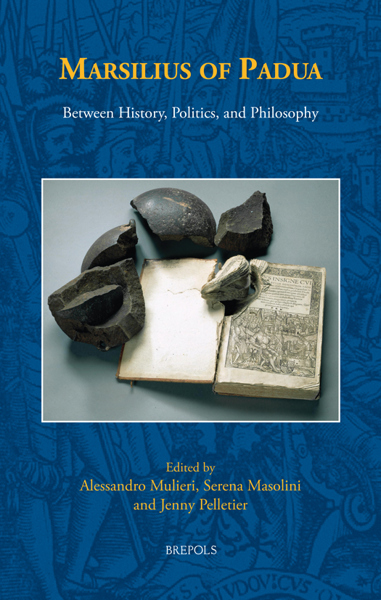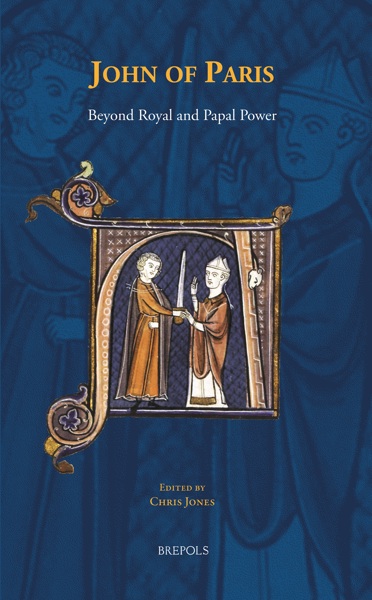
Public Declamations
Essays on Medieval Rhetoric, Education, and Letters in Honour of Martin Camargo
Georgiana Donavin, Denise Stodola (eds)
- Pages: 292 p.
- Size:156 x 234 mm
- Language(s):English
- Publication Year:2015
- € 95,00 EXCL. VAT RETAIL PRICE
- ISBN: 978-2-503-54777-0
- Hardback
- Available
- € 95,00 EXCL. VAT RETAIL PRICE
- ISBN: 978-2-503-54827-2
- E-book
- Available
Public Declamations presents the latest thinking on the history of rhetoric and education, with special emphases on the fields to which Martin Camargo has admirably contributed: literary epistles, dictaminal treatises, educational commentaries, and pedagogical performances.
“All contributors cite Camargo's influence on their own work, and the broad range of studies here illustrates the expansive nature of Camargo's career. That being said, there is relatively little focus on the artes praedicandi, most likely because so much scholarship from the last century has focused on preaching. In this way, though, Public Declamations models itself off of Camargo's career, contributing to our understanding of the history of rhetoric by building upon familiar lines of research and forging new paths for future scholars of rhetoric, literature, history, or performance.” (Frank M. Napolitano, in The Medieval Review, 2016.10.13)
"The collection's five-part structure and its sheer range of scholarship affirms the Disputatio series's interdisciplinary mission and characterizes the scope of Camargo's prolific career." (Frank M. Napolitano, in The Medieval Review, 2016.10.13)
« Les contributions, de grande qualité, permettent de cerner l’ampleur que revêt l’usage de la declamatio; pratiquée dans des contextes et des domaines très différents, celle-ci dépasse parfois le cadre de la rhétorique littéraire et érudite pour s’adapter aux nouveaux besoins formulaires qui apparaissent en Occident pendant les derniers siècles du Moyen Âge. » (M. Cacouros, dans Scriptorium : Bulletin Codicologique, 1, 2019, p. 65)
Martin Camargo, Professor of English, Medieval Studies, and Classics at the University of Illinois at Urbana-Champaign, is a beloved teacher, mentor, colleague, and the scholar whose work this collection celebrates. With interests in defining ‘medieval rhetoric’, understanding the history of both literary and bureaucratic epistles, explaining the revival of rhetorical studies in fourteenth-century England, editing texts for teaching the trivium, and excavating performance pedagogies in medieval language classrooms, Carmago has paved the way for scholars in many fields, including educational and institutional history; literature, language, and manuscript studies; and rhetoric in the Middle Ages.
This book pays tribute to his own ground-breaking research by presenting original and inventive new work in many of these fields. Authored by established scholars and innovative new researchers alike, the essays contained in this volume give significant scope to didactic medieval commentaries, theories of medieval rhetoric and language, literary epistles and the ars dictaminis, and poetry of various genres including romances and riddles, as well as to the classroom practices that all of these investigations infer. In keeping with Camargo’s generosity in sharing resources, the authors hope that their essays in turn will provide encouragement and suggestions for further work.
Introduction — GEORGIANA DONAVIN and DENISE STODOLA
I. Commentaries and Ciceronian Traditions
Affectio in the Tradition of the De inventione: Philosophy and Pragmatism ・ RITA COPELAND
Master William of Champeaux, and Some Other Early Commentators on the Pseudo-Ciceronian Rhetorica ad Herennium ・ JOHN O. WARD
The De inventione Commentary by Manegold (of Lautenbach?) and its Place in Twelfth-Century Rhetoric ・ KARIN MARGARETA FREDBORG
‘Ironical censors of all’: Thomas Nashe and the Sixteenth Century Commentary Tradition ・ JOHN PENDERGAST
II. Documents and Epistles
Letter Writing and Sophistic Careers in Philostratus’ Lives of the Sophists ・ CAROL POSTER
‘Rex Celi Deus’: John Gower’s Heavenly Missive ・ GEORGIANA DONAVIN
Ends and Beginnings in London Merchant Epistolary Rhetoric c. 1460-1520 ・ MALCOLM RICHARDSON
III. Literature and Theory
Manifestations of Otherness in Sir Perceval of Gales: Witches, Saracens and Giants ・ JOERG FICHTE
Spatial Rhetoric in Sir Gawain and the Green Knight ・ DENISE STODOLA
IV. Arts and Education
Commentary on De modo dicendi et metitandi libellus, a Twelfth-century Guide to Prayer and Meditation Composed in France at the Augustinian Abbey of St. Victor under the Tutelage of Hugh ・ TIMOTHY SPENCE
Educating the Senses on Love or Lust: Richard de Fournival and Peter of Limoges ・ RICHARD NEWHAUSER
V. Rhetoric and Performance
Rhetoric and Remedies; Or, How to Persuade a Plant in Anglo-Saxon England ・ LORI GARNER
Performing Dido Marjorie ・ CURRY WOODS
Two Medieval Concepts of Lingual Creativity — JAMES J. MURPHY
